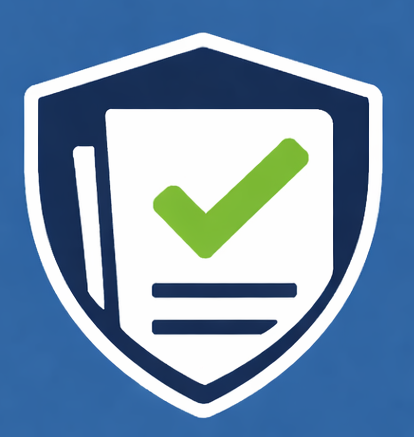Project Management Professional Certification Guide
PMP Certification Guide
The Project Management Professional (PMP) certification, offered by the Project Management Institute (PMI), is one of the most globally recognized and respected credentials in project management. It demonstrates advanced expertise in leading, planning, and executing projects across industries.
Why PMP Is Important
- Recognized worldwide across IT, healthcare, finance, construction, and more.
- Often required for mid- to senior-level project management roles.
- Certified professionals earn 20–25% higher salaries than non-certified peers.
- Validates both traditional (Waterfall) and Agile/Hybrid project management skills.
Requirements and Eligibility
To qualify for the PMP exam, you must meet education + experience requirements:
- Option 1 (Bachelor’s degree or higher):
- 36 months (3 years) of project management experience
- 35 hours of project management education/training or CAPM certification
- Option 2 (High school diploma/Associate’s degree):
- 60 months (5 years) of project management experience
- 35 hours of project management education/training or CAPM certification
Exam Details
- Exam Fee: $405 (PMI members), $575 (non-members)
- Format: 180 questions (multiple-choice, multiple response, drag-and-drop, hotspot)
- Time: 230 minutes (with two 10-minute breaks)
- Exam Content Outline (Domains):
- People (42%) – Leading teams, conflict resolution, leadership skills
- Process (50%) – Technical aspects of project management (planning, executing, monitoring)
- Business Environment (8%) – Compliance, delivering value, aligning with strategy
Salary and Career Outlook
- Average U.S. salary: $120K–$135K
- Roles: Project Manager, Program Manager, Project Director, Portfolio Manager
- Demand: Over 2.3 million new project management roles expected annually through 2030 (PMI data).
Step-by-Step Roadmap to PMP
- Verify Eligibility – Confirm education and project management experience.
- Submit Application – Apply via PMI’s website, listing projects and experience.
- Prepare for the Exam – Use PMI-approved or third-party courses.
- Create a Study Plan – Allocate 2–4 months of prep (longer if working full-time).
- Take Practice Exams – Familiarize yourself with situational questions.
- Schedule the Exam – Online proctored or Pearson VUE test center.
- Pass & Get Certified – Update LinkedIn, résumé, and showcase PMP status.
- Maintain Certification – Earn PDUs every 3 years.
Exam Pass Tips and Mistakes to Avoid
Tips for Success
- Understand PMBOK 7th Edition + Agile Practice Guide — both are tested.
- Focus on situational questions (what should you do as a PM in scenario X?).
- Use the PMI exam content outline as a study guide.
Common Mistakes
- Memorizing ITTOs (Inputs, Tools, Techniques, Outputs) instead of understanding application.
- Ignoring Agile and hybrid methodologies (they now make up ~50% of the exam).
- Not practicing time management — 230 minutes goes by quickly.
Best Study Resources
- PMI Authorized PMP Exam Prep course
- PMBOK Guide (7th Edition) + Agile Practice Guide
- Rita Mulcahy’s PMP Exam Prep Book (highly recommended)
- Udemy PMP prep courses (popular and affordable)
- PrepCast simulator for practice questions
Renewal and Continuing Education Requirements
- PMP is valid for 3 years.
- Must earn 60 Professional Development Units (PDUs) every 3 years.
- PDUs can be earned via webinars, courses, work as a PM, or volunteering.
- Renewal fee: $60 (PMI members), $150 (non-members).
PMP vs Other Certifications
| Certification | Focus | Difficulty | Cost | Avg Salary | Best For |
|---|---|---|---|---|---|
| PMP | Broad project management (Agile + Traditional) | High | $405–$575 | $120K+ | Experienced PMs in all industries |
| CAPM | Entry-level project management | Easy-Medium | $225 | $65K | Beginners with little PM experience |
| PRINCE2 Practitioner | Structured methodology, UK/EU focused | Medium | ~$300–$400 | $90K | PMs in government/Europe |
| PgMP | Program management, multiple projects | Very High | $800+ | $130K+ | Senior PMs handling complex programs |
👉 PMP is best for global recognition. CAPM is for entry-level. PRINCE2 is strong in Europe, while PgMP is for advanced program leaders.
Practice Questions (Mini Quiz)
- A project manager discovers that a key stakeholder’s needs conflict with the project scope. What should the PM do first?
- A) Escalate to the sponsor
- B) Update the project charter
- C) Meet with the stakeholder to understand concerns ✅
- D) Change the project scope immediately
- What is the timebox length for a standard Agile sprint?
- A) 1 week
- B) 2–4 weeks ✅
- C) 6 weeks
- D) Continuous until completed
- Which PMP domain covers compliance and delivering organizational value?
- A) People
- B) Process
- C) Business Environment ✅
- D) Stakeholder Engagement
PMP Certification
The PMP certification is one of the most powerful credentials for project managers. It validates your ability to manage people, processes, and business strategy across industries and significantly increases your earning potential.
If you’re ready to move into mid- or senior-level project management roles, PMP is worth the investment. With structured study, practice exams, and a solid grasp of Agile and traditional frameworks, you’ll join a global network of professionals leading successful projects.







